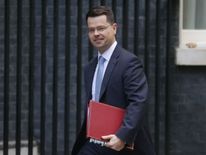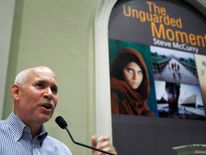Northern Ireland's High Court will deliver judgment today in the first legal challenge to the EU referendum result.
A cross-party group of politicians has questioned the validity of the UK's exit without a vote in either parliament or the Stormont Assembly.
Raymond McCord, father of a terrorist-murder victim, had a separate Brexit challenge heard alongside that of the politicians.
"We are confident," said Mr McCord. "I believe, and my legal people believe, we have a very strong case."
His lawyers argued that the consent principal, enshrined in the Good Friday Agreement, had given people in Northern Ireland control of their sovereignty.
Ronan Lavery QC, representing Mr McCord, said withdrawal from the EU would have a "catastrophic effect" on the peace process.
David Schofield QC, representing the politicians, said the British government was not obliged to trigger Article 50 after the result.
He suggested government plans to use the Royal Prerogative rather than seek the authorisation of parliament to begin proceedings was unlawful.
His clients, including Sinn Fein, SDLP, Alliance and Green Party politicians, want parliament or the Northern Ireland Assembly granted a vote.
But the use of the Royal Prerogative in this context is "not illegal, unorthodox or undemocratic," a lawyer for the government told the court.
Tony McGleenan QC, representing Northern Ireland Secretary James Brokenshire MP, told those trying to halt Brexit that "that ship has sailed".
Northern Ireland's Attorney General intervened in the case himself in support of the government's position.
John Larkin QC said: "Not one word or phrase in the Belfast Agreement or the British-Irish Agreement has been affected."
Earlier this month, Belfast newspaper the Newsletter revealed that the challenge brought by politicians had been funded by Irish-American philanthropist Chuck Feeney.




